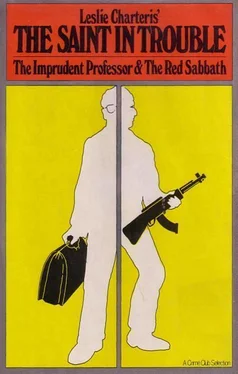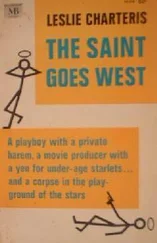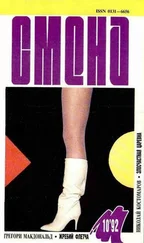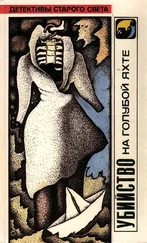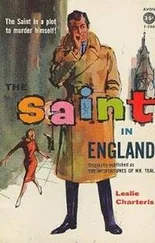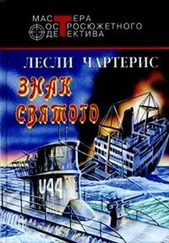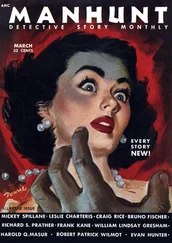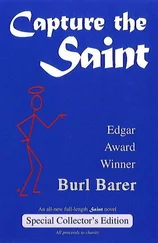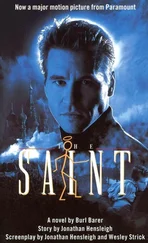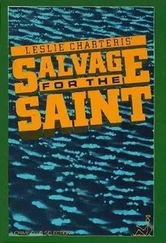The Saint had collected Harry many years ago as part of his routine practice of making the acquaintance of anyone who might some day prove useful. Harry had demonstrated his worth on a number of occasions; and a bond had developed between them which, if it was not exactly welded by affection, was at least held together by mutual profitability.
Harry-the-Nose was valuable to the Saint because among his activities was the supply of tools for others to finish the job. When Mr. Public reads in his morning paper that a gang of bank robbers died in an ambulance or that a man escaped from custody with the aid of a capsule of knockout gas, he marvels at the criminals’ cunning but rarely stops to wonder how they obtain the necessary equipment. It was Harry’s boast that he knew where to get anything from a driver’s licence to a diving-bell, with no questions asked, and the Saint had no reason to doubt him. Harry’s expertise was in constant demand, and there was rarely anything happening about which he did not know something.
The Saint sat down and took a pull at the liquid in his tankard, which tasted as if it might have been watered down with a mixture of liver salts and cold tea.
“Well, Harry,” he prompted, “what’s the feeling?”
“Greasy,” was the laconic reply. “Know what I mean?”
“Not exactly, but I can guess.”
“These wogs are a funny lot,” Harry opined. “Close knit, like, and dangerous. Talk their own lingo and don’t mix. Nobody wants to deal with ’em. Unreliable.”
“So what have you managed to find out?”
“Sammy Parton’s doing the passport and visa. The order was placed by a twist, but it sounds like the one you’re after.”
The Saint nodded.
“It makes sense. Go on.”
“That’s about it, Mr. Templar. There was a bint last week who was asking around about getting a shooter. Somebody had told her where to go, but the lads didn’t want to know. Too risky.”
“And the other three I mentioned?”
“Ain’t heard nothing about ’em. Sorry.”
“That’s okay, Harry,” said the Saint. “Now listen, I’ve got another job for you...”
He outlined his commission, and then repeated the main points to make sure they had registered.
“Could be done,” Harry said eventually, rubbing his salient feature reflectively. “But it’ll cost you.”
The Saint took a cigaret pack from his coat pocket and put it down beside his now empty tankard.
“There’s the fifty quid I promised you, and another fifty on account. Don’t worry, I’ll see you through if the going gets rough.”
He rose and walked away, leaving the cigaret package on the table for Harry-the-Nose to casually transfer to his own pocket before he reached the door.
Simon threw his hat and coat into the back of the car before sliding in behind the wheel and relaying the conversation to Leila. She was less than impressed.
“But how does that help us?”
He had already started the engine and turned the car around, heading back towards the main road.
“First,” he informed her patiently, “we know the identity of the man who’s forging the passport. Therefore he may be able to tell us where to find Hakim. Second, we know that he probably isn’t armed. Third, Masrouf and his merry men have not been sniffing around, and so we have this particular field to ourselves. It’s not sensational, but it’s not bad for starters.”
“And now we are going to this Parton man?”
“Correct. You catch on fast.”
She scowled at his irony before turning her head away and concentrating on her own thoughts.
He was glad of the silence as it relieved him of the responsibility of projecting a confidence that he was far from feeling. He had obtained all the information he had hoped for from Harry, but he was all too conscious of how little it really was. There were so many loose ends that the slightest mishap could unravel the plan he was weaving.
Now he was zigzagging west and north towards Islington, drawing on a knowledge of London’s unsystematic streets unmatched except by professional taxi drivers. Presently he braked in front of a grubby stationers’ shop a couple of miles from the Carpenter’s Arms as only a crow could have flown it, and was pleased to see that a light was burning in the flat above.
Leila looked at the shuttered shop window.
“This is Parton’s?”
“Yes.”
He opened the door and was about to climb out but she caught his arm.
“You are not leaving me behind again,” she said.
For a moment the Saint hesitated. He knew she was a trained agent accustomed to violence and danger, yet he found it hard not to be protective. He realised that he was still hopelessly fettered to certain old-fashioned attitudes, and forced himself to remember that the times had changed and were never going to change back again. The mere fact that the girl beside him was a genuine army captain was a symptom that would have made Sir Galahad writhe in his armour.
“Very well,” he said shortly. “But you’ll have to do exactly as I say. And be careful. Parton keeps a tame gorilla on hand to discourage unfriendly callers, and he will consider us very unfriendly indeed.”
He led the way past the shops and down a narrow passage between it and the next building. A seven-foot-high wall broken only by a door with no outside keyhole or handle enclosed what might have been the house’s back garden and hid the ground floor of the building from view.
Bracing his back against the brickwork, he cupped his hands and motioned Leila to climb up, but she ignored his offer of help, took two steps back, and sprang for the top of the wall. He watched in admiration as she pulled herself up by her fingertips and in one flowing movement jumped down on the other side.
A few seconds later he landed beside her. Enough light came through the kitchen window curtains to show that they were in a neglected back yard in which amorphous stacks and mounds of undistinguished rubbish had prevailed over any other cultivation. The Saint stepped over to the kitchen door, and swore silently to himself as the testing pressure of his expert fingers indicated that the mortise lock was reinforced by a bolt which had been securely shot home. He moved along to the kitchen window, and after listening with an ear to the glass for any sound inside he carefully slid the thin blade of a penknife between the sashes until it grated against the catch. Pushing the blade further in he pressed sideways while his ears strained to pick up any warning sound that might mean that their intrusion had been spotted.
Slowly the catch began to move, and he applied more pressure until finally the blade met no resistance and he was able to press both hands against the glass and inch the window up. The rasping of the frame against its surround sounded as loud as a drum roll, and several times he stopped and waited to be sure that the noise had not disturbed the household.
He parted the curtains and listened again for the sound of anyone coming to investigate. Only when he was completely satisfied that his break-in had gone unheard, he swung himself over the sill and turned to help Leila to follow him. The instinctive courtesy was quite superfluous: almost disdainfully, she slid through the opening with hardly a touch on his proffered hand, and he grinned wryly at the remainder of her uncompromising competence.
Signalling her to let him stay in the lead, he moved to the door on the opposite side of the room and inched it open. A hall lit by an unshaded bulb stretched before him. Two doors led off from the left of the passage, while a staircase to the flat above took up most of the space on the right.
He beckoned Leila to follow and stepped into the corridor, treading warily along the edges of the bare boards to reduce the risk of their creaking. Leila followed his example and they had reached the foot of the stairs when the door of the back room was flung open.
Читать дальше
